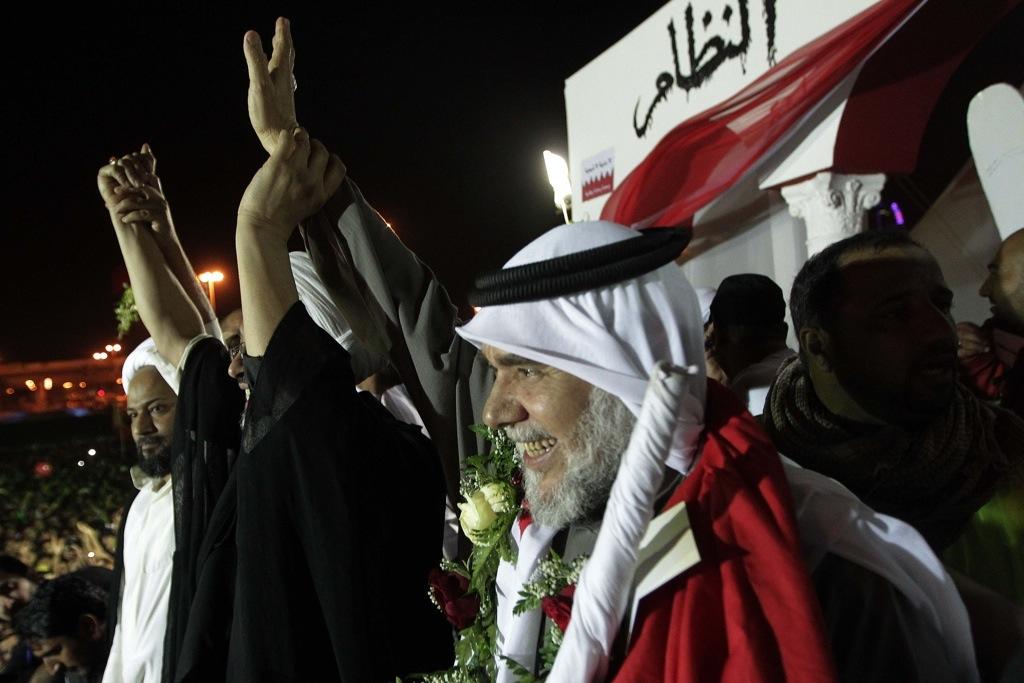Oil’s spike: Sunni v. Shia
Bahraini Shiite opposition leader Hassan Mashaima, left, greets anti-government protesters gathered at Pearl Square in Manama on February 26, 2011 upon his return from self-imposed exile following assurances from the Gulf kingdom that he had been pardoned of terrorism-related charges. Bahrain’s protests put it at the center of the bitter divide between Sunnis and Shias in the Gulf.
Here's a great recipe for higher oil prices:
Take a volatile situation (Tunisia, Egypt, Libya, etc.). Toss in the power of social media. Add non-stop media coverage. And, for that extra kick, mix with a generous dollop of religious division.
That's what we're seeing now on global oil markets, according to David Kotok, courtesy of the ever-smart and always entertaining Business Insider.
In today's piece Kotok — chairman and chief investment officer of Cumberland Advisors — makes this salient historical point about rising oil prices:
"One needs to put this MENA (Middle East North Africa) contagion into the millennium old perspective of the Shia-Sunni schism in Islam. Discussion of that is beyond this short missive. But we must note that Iran is now the dominant sponsor of Shiite Islam and Saudi Arabia is the keeper of Sunni tradition. Readers and serious investors are encouraged to study this schism. Think about it as you think about Catholics vs. Protestants or the War of the Roses. Put that type of historical enmity into an Islamic setting. No way is this over."
This Sunni-Shia divide is popping up most clearly in unstable Bahrain, as GlobalPost's Caryle Murphy reported on Feb. 26.
The tiny island state has been hit by weeks of protests by its largely Shia population.
Here's how Caryle explains it:
Unprecedented pro-democracy protests there by the Shia community have had a longer reach than what would normally be the case in a country of only 738,000 for one simple reason: Bahrain’s close ties to its huge neighbor, Saudi Arabia.
The two countries are linked by a 16-mile, multi-lane causeway and by the shared commitment of their Sunni ruling royal families to remain in power. Oil-rich Riyadh also financially supports petroleum-poor Bahrain.
The two states are also determined to thwart what they regard as hegemonic attempts by Iran, which holds itself out as the champion of Shia rights, to control the Gulf region, and in particular, to extend its influence in Bahrain’s internal affairs.
“Both Saudi Arabia and Iran have an interest in Bahrain, and what happens there would reflect on the strategic balance in the Gulf region,” said Fares Braizat of the Qatar-based Arab Center for Research and Policy Studies.
Meanwhile, oil prices have been volatile again today, touching their highest levels since September 2008 before slipping back.
Get used to it.
Every day, reporters and producers at The World are hard at work bringing you human-centered news from across the globe. But we can’t do it without you. We need your support to ensure we can continue this work for another year.
Make a gift today, and you’ll help us unlock a matching gift of $67,000!
